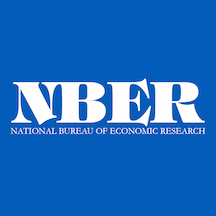 A new study from the National Bureau of Economic Research has analyzed the systemic barriers low-income students encounter when applying to college. The researchers found that low-income students are far more likely to apply to more elite and selective schools if they are aware of the extent of financial aid available to them.
A new study from the National Bureau of Economic Research has analyzed the systemic barriers low-income students encounter when applying to college. The researchers found that low-income students are far more likely to apply to more elite and selective schools if they are aware of the extent of financial aid available to them.
For their study, the research team targeted low-income high school seniors from Michigan who met the academic requirements for admission to the University of Michigan, which is the most selective school in the state. The researchers sent these students personalized mailings that encouraged them to apply to the university and told them they would receive four years of free tuition if they were admitted. They also sent this information to the students’ parents and high school principals. The financial aid program was not created by the researchers; it was already available to the students, but it had not been communicated in this way before.
“The likelihood of application to the University of Michigan more than doubled, from 26 percent among controls to 67 percent among students offered treatment. The share enrolling at any highly selective college more than doubled, from 13 percent to 28 percent, with this effect operating completely through enrollment at University of Michigan,” researchers wrote. “One-quarter of the enrollment effect (four percentage points) is driven by students who would not have attended any college in the absence of the treatment. The balance would have attended a community college or a less selective four-year college in the absence of the treatment.”
The results show that even though low-income students always had this financial aid available to them, the communication barrier prevented them from applying to the University of Michigan and other highly selective schools. The researchers believe that continuing to provide these students with sufficient information about financial aid will improve the enrollment rates of low-income students.
The full study “Closing the Gap: The Effect of a Targeted, Tuition-Free Promise on College Choices of High-Achieving, Low-Income Students,” can be accessed here.

